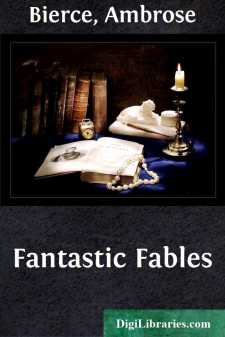Categories
- Antiques & Collectibles 13
- Architecture 36
- Art 48
- Bibles 22
- Biography & Autobiography 813
- Body, Mind & Spirit 142
- Business & Economics 28
- Children's Books 15
- Children's Fiction 12
- Computers 4
- Cooking 94
- Crafts & Hobbies 4
- Drama 346
- Education 46
- Family & Relationships 57
- Fiction 11828
- Games 19
- Gardening 17
- Health & Fitness 34
- History 1377
- House & Home 1
- Humor 147
- Juvenile Fiction 1873
- Juvenile Nonfiction 202
- Language Arts & Disciplines 88
- Law 16
- Literary Collections 686
- Literary Criticism 179
- Mathematics 13
- Medical 41
- Music 40
- Nature 179
- Non-Classifiable 1768
- Performing Arts 7
- Periodicals 1453
- Philosophy 64
- Photography 2
- Poetry 896
- Political Science 203
- Psychology 42
- Reference 154
- Religion 513
- Science 126
- Self-Help 84
- Social Science 81
- Sports & Recreation 34
- Study Aids 3
- Technology & Engineering 59
- Transportation 23
- Travel 463
- True Crime 29
Original Short Stories - Volume 06
by: A. E. Henderson
Categories:
Description:
Excerpt
THAT COSTLY RIDE
The household lived frugally on the meager income derived from the husband's insignificant appointments. Two children had been born of the marriage, and the earlier condition of the strictest economy had become one of quiet, concealed, shamefaced misery, the poverty of a noble family—which in spite of misfortune never forgets its rank.
Hector de Gribelin had been educated in the provinces, under the paternal roof, by an aged priest. His people were not rich, but they managed to live and to keep up appearances.
At twenty years of age they tried to find him a position, and he entered the Ministry of Marine as a clerk at sixty pounds a year. He foundered on the rock of life like all those who have not been early prepared for its rude struggles, who look at life through a mist, who do not know how to protect themselves, whose special aptitudes and faculties have not been developed from childhood, whose early training has not developed the rough energy needed for the battle of life or furnished them with tool or weapon.
His first three years of office work were a martyrdom.
He had, however, renewed the acquaintance of a few friends of his family —elderly people, far behind the times, and poor like himself, who lived in aristocratic streets, the gloomy thoroughfares of the Faubourg Saint-Germain; and he had created a social circle for himself.
Strangers to modern life, humble yet proud, these needy aristocrats lived in the upper stories of sleepy, old-world houses. From top to bottom of their dwellings the tenants were titled, but money seemed just as scarce on the ground floor as in the attics.
Their eternal prejudices, absorption in their rank, anxiety lest they should lose caste, filled the minds and thoughts of these families once so brilliant, now ruined by the idleness of the men of the family. Hector de Gribelin met in this circle a young girl as well born and as poor as himself and married her.
They had two children in four years.
For four years more the husband and wife, harassed by poverty, knew no other distraction than the Sunday walk in the Champs-Elysees and a few evenings at the theatre (amounting in all to one or two in the course of the winter) which they owed to free passes presented by some comrade or other.
But in the spring of the following year some overtime work was entrusted to Hector de Gribelin by his chief, for which he received the large sum of three hundred francs.
The day he brought the money home he said to his wife:
"My dear Henrietta, we must indulge in some sort of festivity—say an outing for the children."
And after a long discussion it was decided that they should go and lunch one day in the country.
"Well," cried Hector, "once will not break us, so we'll hire a wagonette for you, the children and the maid. And I'll have a saddle horse; the exercise will do me good."
The whole week long they talked of nothing but the projected excursion.
Every evening, on his return from the office, Hector caught up his elder son, put him astride his leg, and, making him bounce up and down as hard as he could, said:
"That's how daddy will gallop next Sunday."
And the youngster amused himself all day long by bestriding chairs, dragging them round the room and shouting:
"This is daddy on horseback!"
The servant herself gazed at her master with awestruck eyes as she thought of him riding alongside the carriage, and at meal-times she listened with all her ears while he spoke of riding and recounted the exploits of his youth, when he lived at home with his father....






















